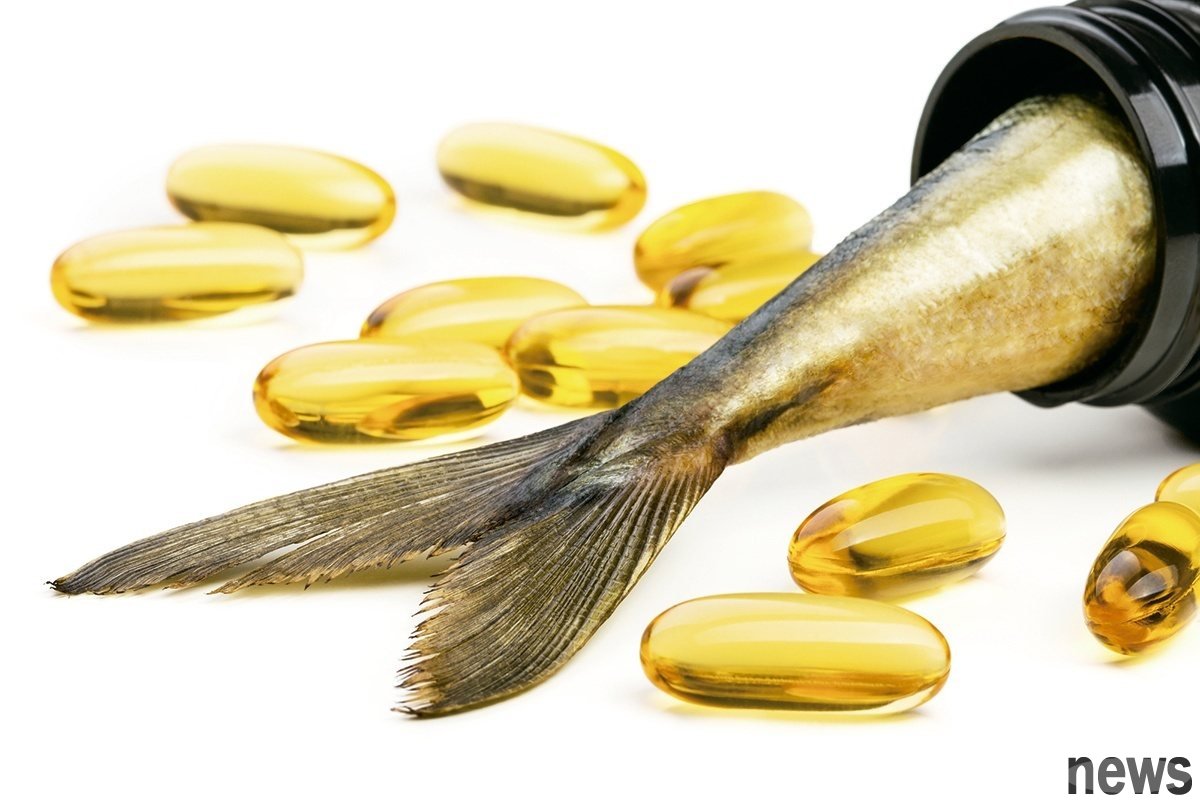
Fish oil is a must-order health food for many people. It is said that the defense range of fish oil is very wide. The most common high blood lipids in hairdressers, joint inflammation and pain, thin hair volume, and deterioration of yellow spots. It is said that fish oil seems to be helpful. Some people even say that fish oil can protect the cardiovascular system, reduce the occurrence of cardiac diseases, and even protect the functions of the nerves and brain, reducing depression.
Okay, what's the problem? Do you think these effects are real? Can the efficacy of fish oil be proved by research? Or is it just personal experience and publicity methods? If it is true, how much should I eat? Will it be overloaded?
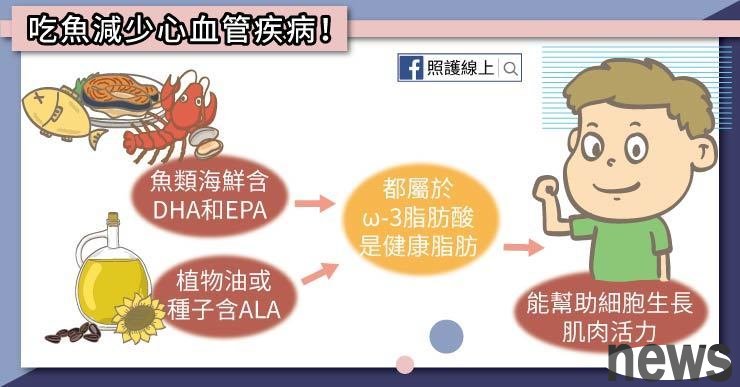
It turns out that when the Western world studies cardiovascular diseases. When problems such as hypertension and myocardial infarction are being studied, everyone has found that Northern Europeans seem to have less chances of getting cardiovascular diseases. Then everyone thought, what is the difference between Northern Europeans and other Westerners? ah! Diets are a little different! Northern Europeans eat more fish and seafood.
The study further pointed out that the cause of cardiovascular disease in Northern Europe should be a healthy fat – ω-3 fatty acids, which is called omega-3 fatty acids. ω-3 fatty acids are "unprepared and fatty acids". You may have heard these terms on your TV ads. DHA and EPA, which make people smart, are both ω-3 fatty acids. This ω-3 fatty acid is very important to cells and is related to cell growth and muscle vitality. But we humans cannot make it themselves, so we need to be fed from food.
The main sources of food are fish, cherry, herring, sardine and other seafood, and they are also found in raw cherry, crabs and mussels. They can bring DHA and EPA. The ω-3 fatty acids contained in plants are another type called ALA, which are found in flax seeds, walnuts, and vegetable oils. Fish is the best source for ω-3 fatty acids.
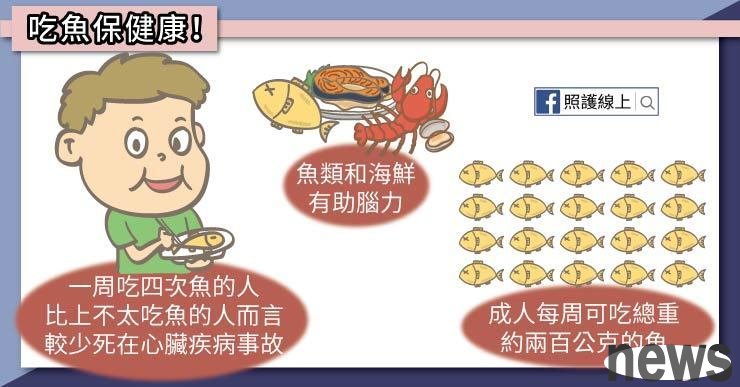
Study found that people who eat fish four times a week die less frequently than those who don’t eat fish. Moreover, fish and seafood are better for brain strength, and they are less dementia or medium-tempered. It should be because fish seafood can replenish ω-3 fatty acids. It is currently recommended that adults should eat two servings a week, with a total weight of about two hundred grams of fish.
Take nutrition &omega from diet;-3 fatty acids are very important for physical healthFor some people, it is difficult to get two servings of fish every week. Some people are afraid of the fishy smell of the sea, some are prone to allergies, some people think it is not delicious, and some people are afraid of heavy metal dyeing. The mercury content of marsh fish and marsh fish is quite high. So there is a reason not to eat fish!
Okay, if eating fish makes people healthy, it is because we have taken the good fat in the fish, can we directly take out the fat of the fish and make it into nutrients? Just eat fish oil? Next, let’s take a look at the evidence of the health impact of fish oil.
Research on fish oil● Research on people with hypertension
believes that if the hypertension is already severe, more than two or three drugs are needed to control it, and there may be benefits to taking fish oil supplementation.
● People who have clear questions about calculating
Studies have found that if the patient has a really high calcified sterol (LDL) and triglycerides, suffering from other comorbidities such as diabetes, and is already taking drugs that lower blood lipids, taking 4 grams of pure EPA every day can reduce the chance of chest pain and heart disease.
Another study in Japan also found that for people who are already taking blood lipid-lowering drugs and have hypertension and diabetes, it was found that supplementing 1.8 grams of EPA a day can also reduce the chance of heart disease.
Bu (very important but) The two studies used not the fish oil capsules commonly purchased on the market, but another pure EPA agent for medicine. To eat such a large amount of EPA, it means you have to eat 10 or 20 fish oil capsules sold in a day!
(Reminder: Don't swallow 20 fish oil capsules every day when you see it. The fish oil on the market has not been tested for drug management. In addition to useful EPA, there are many additives. Overdose is not good. Please continue reading...)
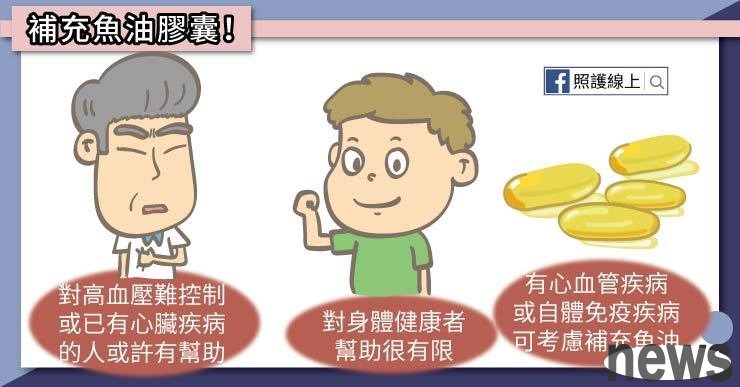
● For those who are not interested in the problem, everyone is also interested in knowing if they are still considered healthy and do not have too many risk factors for cardiovascular disease, taking low doses of fish oil, or saying that it is generally recommended to dosage of fish oil capsules, will it be helpful?
A study found that eating one gram of fish oil a day contains 460 mg of EPA and 380 mg of DHA. Over the five years of continuous use, the chance of heart disease is relatively low, but the trend and death caused by heart disease has not decreased. It is also regrettable that many other studies have not proven that the general dose of fish oil can reduce the chance of heart disease. Research in earlier years found that fish oil has a great help, but now it may be because the prevention medicine has done a good job, and there are too many useful drugs, which can lower blood pressure and blood lipids have better efficacy. It is even more difficult to rely solely on fish oil supplements to reduce the chance of cardiovascular disease.
● What about other parts of the body?
If you eat fish oil, the purpose is not to be healthy, but to protect other parts. Currently, research believes that fish oil can reduce the symptoms brought by some types of storm-related inflammation, with less stiffness in the morning, and may even reduce the use of painkillers.
There are also tips for people who are prone to Alzheimer's disease due to genetic changes, which may be helpful if you start taking high doses of fish oil before you even have symptoms.
In other aspects, I have not seen the obvious effect of fish oil, especially those who usually eat a lot of fish, it is useless to eat fish oil.
So what? Do you want to eat or not?If you are healthy now and do not have the habit of taking fish oil, you can start with eating fish, eat two servings of fish, fish, herring, etc. a week, with a total weight of about two hundred grams of fish, and you don’t need to eat fish oil supplements specifically. Please remember that it is "very limited" for people who have no risk factors and have never been worried about problems to gain good opportunities by eating fish oil for maintenance.
If you are already replenishing fish oil, don't eat more because we mentioned above the benefits of "high dose EPA" and so on, because there is no evidence that it is safe to replenish high doses of commercially available fish oil. If taken as recommended dosage, fish oil is generally considered a safe supplement. However, it is very important to prevent cardiovascular diseases, such as taking drugs that control hypertension, hyperlipidemia, and hyperglycemia on time!
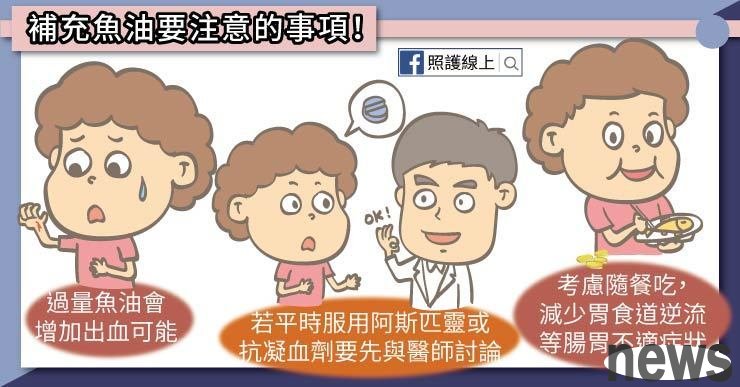
If you already have cardiovascular or autoimmune diseases, you can consider supplementing fish oil nutrients, but you can discuss the appropriate dosage with the doctor first. Also note that the following drugs may interact with fish oil:
◇ Aspirin, anticoagulant, and herbal medicine that promotes blood circulation are herbs or healthy foods: excessive amounts of fish oil may bring the risk of bleeding. If used with anticoagulant and blood circulation drugs, it may cause bleeding.
◇ Contraceptive medicine: Contraceptive medicine affects the ability of fish oil to lower triglycerides.
◇ Weight loss medicine Roth: If you eat Roth, it will be difficult for your body to absorb fish oil. You need to change the time to eat fish oil or not to eat it first.
◇ Vitamin E: Eating fish oil can easily reduce the concentration of vitamin E in the body.
Although fish oil is a relatively safe supplement, it may still bring side effects such as hiccups, indigestion, nausea, abdominal pain, constipation, gastroesophageal reflux, etc. Some people think that fish oil has a strong fishy smell. Therefore, if you want to take it, it is best to eat it with the meal. Remember that excessive amounts may increase the risk of bleeding. If you want to supplement, you should discuss it with the doctor first.
Original text: Care online
Search nearby clinics: Internship, Western Medicine General, Family Medicine
Free registration, free registration, and plagiarism!